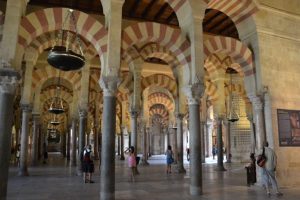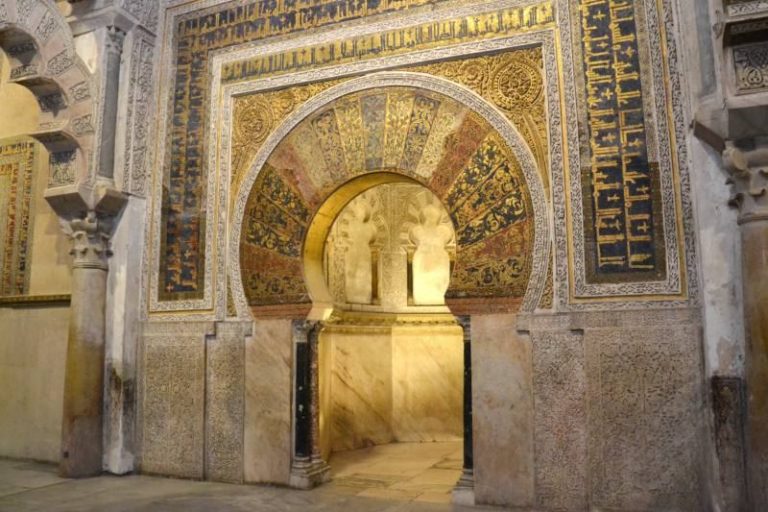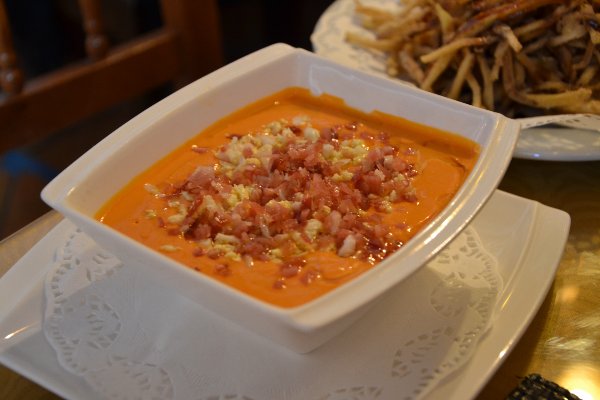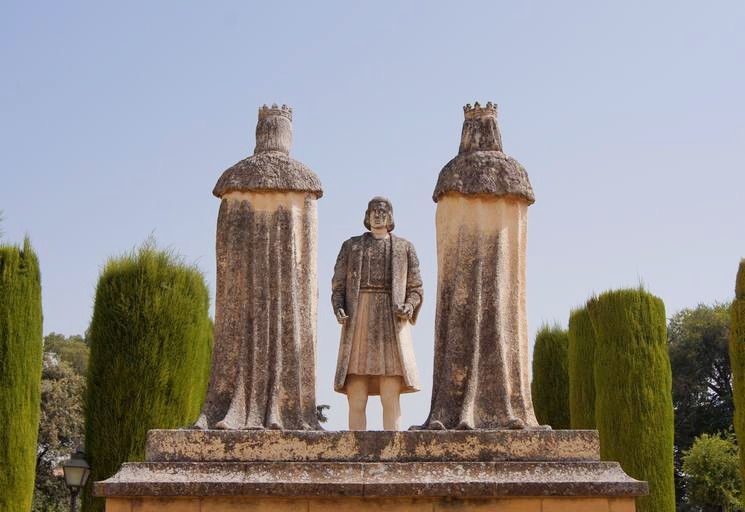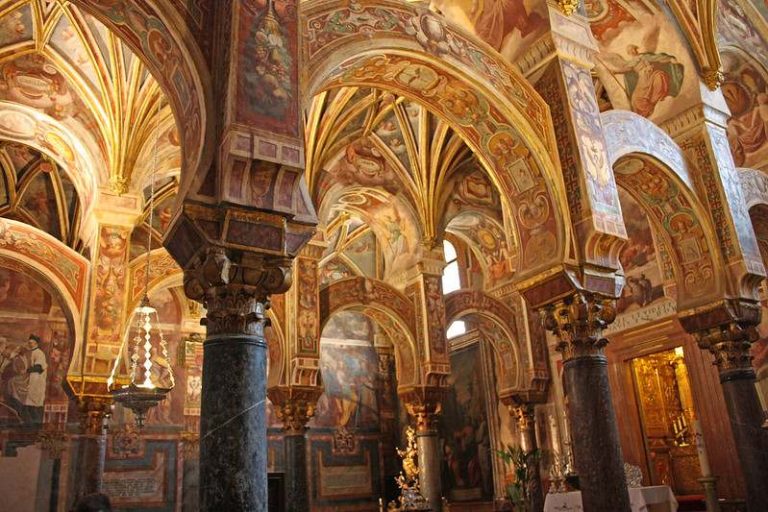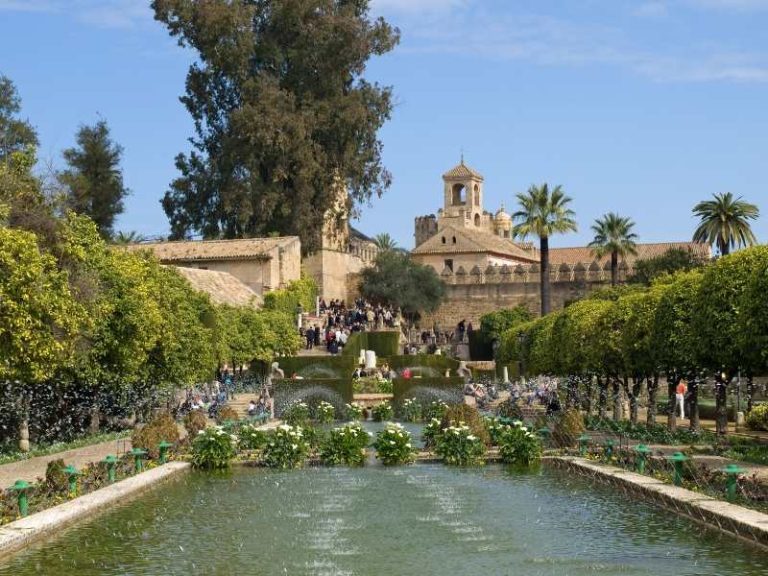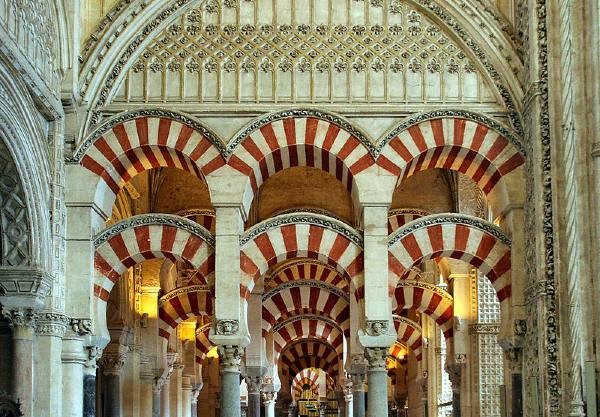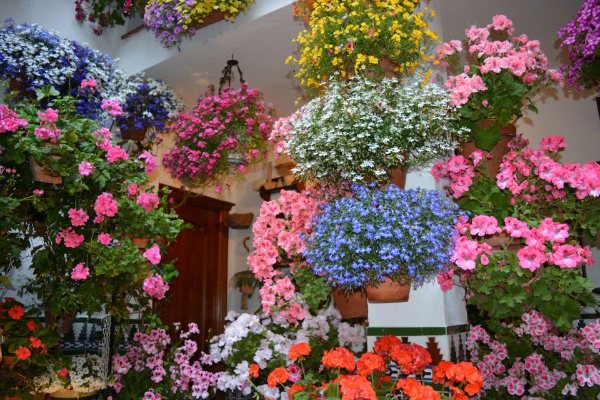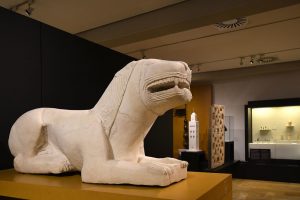
The Plaza del Potro in Cordoba (Square of the Colt)
Plaza del Potro or (Square of the Colt in English) is located in the heart of Cordoba Old Town, between the Great Mosque of Cordoba and Plaza de Corredera (near Guadalquivir River).
Despite being a very touristy place, it is not easy to find. You will have to enter the labyrinth of narrow streets of the historic center. But believe us, the place is worth it.
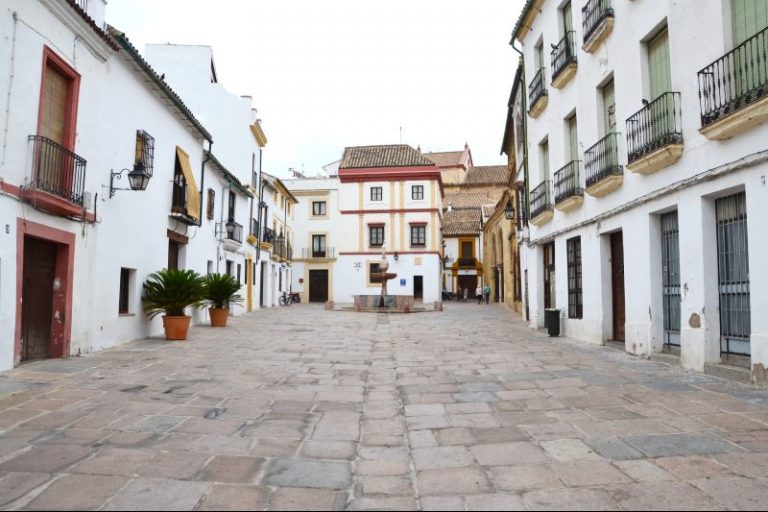
Why to Visit the Plaza del Potro
At present this charming square in the historic center is very frequented by tourists, especially during the last 10 years with the tourism boom experienced in the city. However, it still preserves the essence of tradition.
Surely, you are wondering why this square has such a peculiar name (Square of the Colt). It is really easy to explain. In the middle of the square there is a small fountain (16th century) with a rampant colt that gives the square its name. This lovely fountain was used until the 19th century to supply water to the residents of the neighborhood.

The first written reference to this square dates back to the end of the 14th century. However, the fountain was not built until 1577, when the neighborhood enjoyed a frenetic commercial activity (craft workshops, taverns, inns for visitors and dealers, etc.)
During the nineteenth century, commercial activity of the neighborhood was progressively decreasing, and many businesses shut down. The economic decline turned this part of the city into a degraded area. Fortunately, tourism has revitalized this part of the city and restored to its former splendor.
At the other end of the square, there is a monument to Archangel Raphael, who according to Christian tradition, saved Cordoba during a plague epidemic in the seventeenth century. Since then, the city pays tribute to the Archangel Raphael with numerous monuments throughout the city. Even the feast day of Saint Raphael the Archangel (24th October) is a city holiday in Cordoba.
Inn of the Colt
On the east side of the square you will find the “Posada del Potro” (Inn of the Colt). The origin of this charming inn is lost in time. The exact year when this inn was opened is unknown so far.
According to a legend, in the 14th century this inn was run by a wicked man; he assaulted women, robbed his guests, and even murdered several of them. When King Peter the Cruel (1334-1369) discovered the aberrational behavior of the owner of the inn, decided to punish him. He was tied to the feet of horses and torn apart limb from limb.
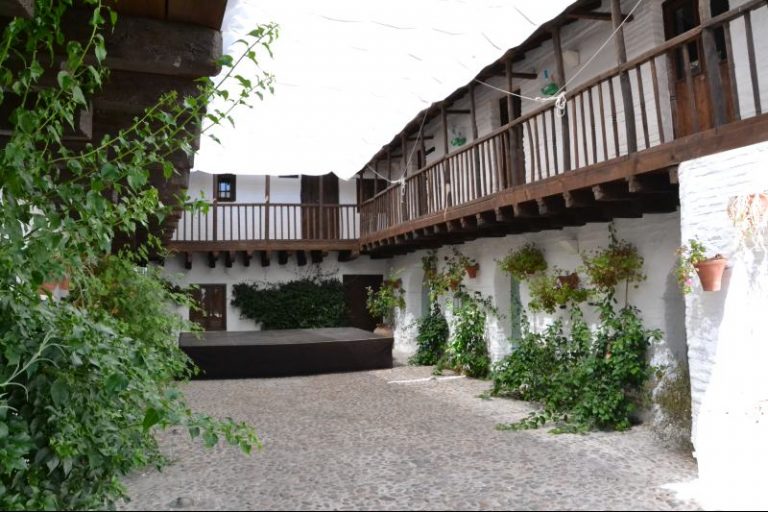
Of course, if you are a lover of literature, you cannot miss the Inn of the Colt. This emblematic inn was mentioned in “Don Quixote” (Miguel de Cervantes), one of the masterpieces of Spanish literature. In fact, it is said that Miguel de Cervantes himself stayed at this inn every time he visited Cordoba. Fortunately, the building still preserves the historic structure and today houses the interesting Flamenco Museum Fosforito.
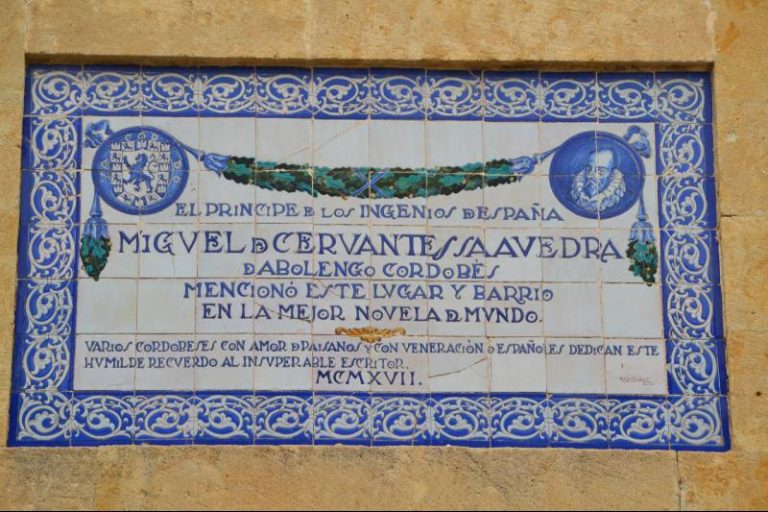
What to See in the Plaza del Potro
Without a doubt, the main attraction of this square is its charming fountain topped by the figure of a colt, which dates from the 16th century. However, there are also three interesting museums that you don’t want miss.
Flamenco Museum Fosforito
The Flamenco Museum Fosforito is located inside the emblematic Inn of the Colt. The museum is named after Fosforito, a famous flamenco singer born in the province of Cordoba.
This small museum is divided into 8 rooms where you can delve deeper into the history of flamenco and the different styles of this typically Spanish genre.
Especially interesting is the room dedicated to flamenco guitar, whereyou will learn about the evolution of this musical instrument from the Muslim era to the present day.
Without any doubt, this museum is a great introduction to the world of flamenco.
The museum also houses a fantastic library with more than 500 books on flamenco.
-Price: Free entry
-Opening Hours: Mon – Sat from 08:30 am to 3 pm / Sun from 08:30 am to 2:30 pm (Monday closed)
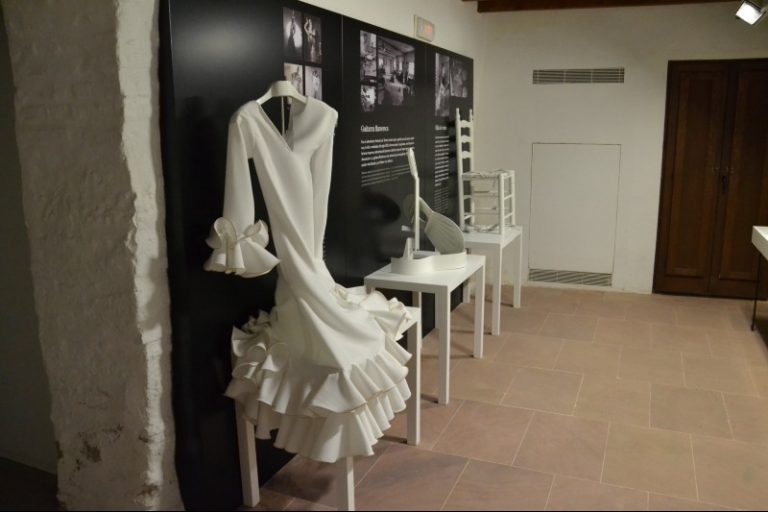
Museum of Fine Arts
Interesting museum of Fine Arts that houses pieces from the 16th century to the present. In total, the museum collection is made up of more than 2,500 pieces that include paintings, ceramics, archaeological pieces, etc.).
If you like the Spanish Baroque art, you will love this small museum. Mainly, the museum exhibits works by local artists such as Juan de Alfaro y Gámez, Tomás Muñoz Lucena, or Antonio del Castillo y Saavedra. Cordoba is a small city but with a great artistic production.
–Opening Hours: From 1st July to 31st August (Tue-Sun from 9 am to 3 pm) / From 1st September to 30th June (Tue-Sat from 9 am to 9 pm, Sun from 9 am to 3 pm)
-Prices: Free entry for EU citizens / Rest of the world: 1,5€
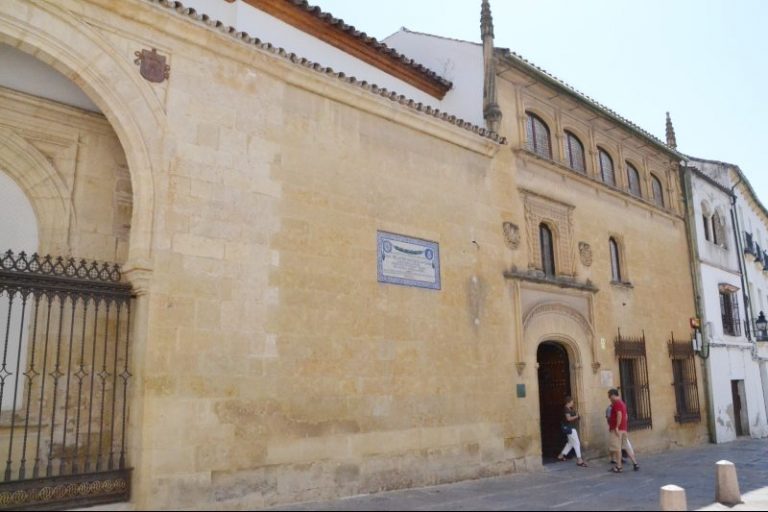
Julio Romero de Torres Museum
Julio Romero de Torres (Cordoba 1874-1930) was one of the greatest Spanish painters in the 20th century. Actually, some of his most famous works have been exhibited in museums around the world (United States, Argentina, France, etc.).
Julio Romero de Torre’s style is very characteristic. In his paintings, he combines the Andalusian tradition with the Italian Renaissance. His portraits of Andalusian women (brunettes with big black eyes) are especially famous in Spain.
Fortunately, this museum in Cordoba displays his most important works. But not only his most famous works. The museum also displays some of the artist’s belongings.
-Opening Hours: From 16th September to 15th June (Tue – Fri from 8:30am to 7:30pm, Sat from 9:30am to 4:30pm and Sun from 09:30am to 2:30pm / From 16th June to 15th September (Tue – Sat from 08:30am to 2:30pm and Sun from 09:30am to 2:30pm) Monday closed
-Prices: €5 / Students: €2,5 / free entry: persons under the age of 18 and over 65.
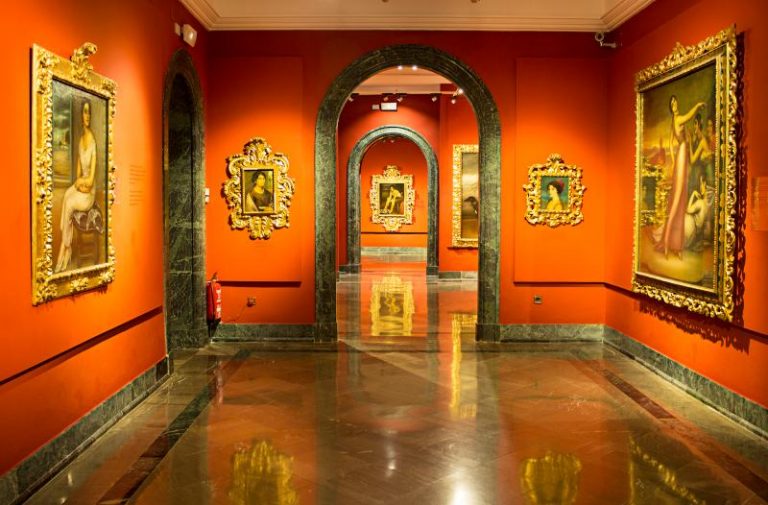
Opening Hours
Monday closed
Museum of Flamenco "Fosforito"
Tue – Sat from 08:30 - 15:00
Sun 08:30 - 14:30
Monday closed
Museum of Fine Arts
From 1st July to 31st August
Tue -Sun 09:00-15:00
From 1st September to 30th June
Tue - Sat 09:00 - 21:00
Sun 9:00 - 15:00
Julio Romero de Torres Museum
From 16th September to 15th June
Tue – Fri 08:30 - 19:30
Sat 09:30 - 16:30
Sun 09:30 - 14:30
From 16th June to 15th September
Tue – Sat 08:30 - 14:30
Sun 09:30 - 14:30
IMPORTANT! January 1, January 6, May 1, December 24, December 25 and December 31 the palace of Medina Azahara will be closed
Address:
Plaza del Potro, Córdoba
Built in:
16th century (Christian period)
Tickets :
Museum of Flamenco "Fosforito"
Free entrance
Museum of Fine Arts
Free entry for EU citizens / Rest of the world: 1,5€
Julio Romero de Torres Museum
General: €5
Students: €2,5
Persons under the age of 18 and over 65 yo: Free entrance
Nearby Places of Tourist Interest
–The Mosque-Cathedral: 650 meters (700 yards)
–Roman Bridge of Cordoba: 600 meters (650 yards)
–Alcazar of the Christian Monarchs: 1 kilometer (1093 yards)
-Corredera Square: 280 meters (306 yards)
-Las Tendillas Square: 700 meters (765 yards)


